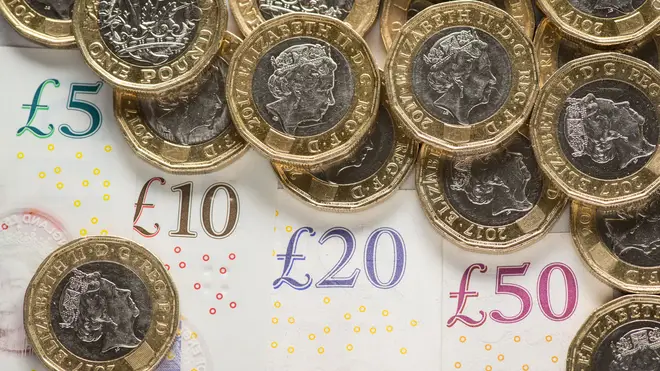
Shelagh Fogarty 1pm - 4pm
23 June 2022, 15:54

The total tax due to be paid fell from £672 billion in 2019/20 to £635 billion in 2020/21, due to the economic impact of Covid-19, HMRC said.
The tax gap – the difference between the total amount of tax expected and that which is actually paid – was £32 billion in 2020/21 – according to HM Revenue and Customs (HMRC).
At 5.1%, there has been no change in the percentage tax gap compared to the previous year, although the monetary value has fallen by £2 billion from £34 billion in the 2019/20 tax year, HMRC said.
Failure to take reasonable care, criminal attacks, non-payment and evasion were among the main reasons for the tax gap in 2020/21 in terms of behaviour.
In terms of customers, small businesses were responsible for nearly half of the tax gap, at around £15.6 billion, according to HMRC’s data.
Criminals accounted for £5.2 billion of the gap, while medium-sized businesses made up £3.9 billion and large businesses accounted for £3.6 billion.
Individuals accounted for £2.5 billion of the overall tax gap, with wealthy customers accounting for £1.5 billion, according to the figures, which were rounded.
The tax gap for income tax, national insurance contributions and capital gains tax was £12.7 billion in 2020/21.
VAT accounted for the second biggest chunk of the total tax gap, at £9.0 billion.
Corporation tax accounted for £5.6 billion of the gap, while excise duties made up £3.5 billion.
Around 4% of the tax gap involved “other taxes”, covering a range of levies including customs duty, insurance premium tax and inheritance tax.
The total tax due to be paid fell from £672 billion in 2019/20 to £635 billion in 2020/21, due to the economic impact of Covid-19.
The revenue body said there is some uncertainty for the tax gap estimates for the first year of the coronavirus pandemic and they could be subject to revisions in future years.
Jonathan Athow, HMRC’s director general for customer strategy and tax design, said: “The vast majority of taxpayers and businesses paid the correct amount of tax owed.
“We want to help everyone to get their tax right as the revenue we raise helps fund our vital public services.”
HMRC said there has been a long-term reduction in the overall tax gap, from 7.5% in 2005/06, to 5.1% in the 2020/21.
Its publication excluded estimates of error and fraud in the Covid-19 support schemes.
HMRC added that it is impossible to collect every penny of tax that is owed. It cannot collect outstanding tax from businesses that go bust, for example.
John Barnett, chair of Chartered Institute of Taxation’s technical policy and oversight committee, said: “The economic support measures undoubtedly helped many businesses survive the pandemic but the long-term situation is less clear.
“We will probably have to wait a number of years for the full impact of the pandemic to become clear, as we find out how much of the tax deferred in 2020-21 will ultimately go unpaid due to business failure.”
Dawn Register, head of tax dispute resolution at tax and business advisory firm BDO, said: “Given the financial difficulties facing individuals and businesses, it should not be assumed that deferred tax from 2020-21 will be paid in full to HMRC.
“Some may not be able to pay it back, and we do expect personal insolvencies and business bankruptcies to rise.”
She said criminal attacks, tax evasion and the hidden economy (those not registered for tax) remain “rife”, adding: “To make serious inroads and improve tax compliance, HMRC needs to be adequately resourced with technology for data analytics, as well as expert investigators.”